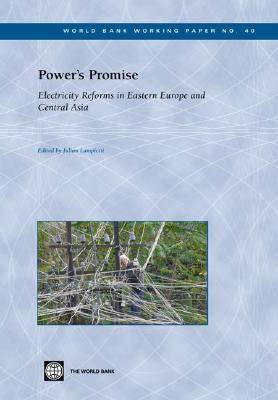World Bank Working Paper
4 primary works
Book 3
Turmoil in Latin America and the Caribbean
by Guillermo Perry, Norbert Fiess, and World Bank
Published 16 May 2003
Since June 2002, there has been an increase in the level and volatility of spreads along with pressures in the foreign-exhange markets across Latin America and the Caribbean region (LAC). These have been accompanied by political changes and greater political uncertainty in some countries. Countries such as Uruguay, Paraguay and Bolivia have been facing losses of deposits and reserves of varying degrees of intensity. This report analyses potential contagion and spillover effects of the Argentine crisis from other sources of market volatility. The report also examines the impact of the crisis on foreign and direct investment flows as an indicator of potentially long-lasting harmful effects on capital flows to the LAC region. Finally, it assesses the impact of the Argentina crisis on individual countries in terms of trade and/or financial links.
Book 10
Government decisions are rarely driven solely by the dictates of cost-benefit analyses. Generating good decision making about fiscal support also requires processes for decision making that facilitate good analysis and temper the influence of self-interest. This report sets out a framework intended to help governments make better decisions about giving fiscal support for private infrastructure services and provides some tools to facilitate analysis. Several policies to enhance the collocation of information, incentives and decisions are proposed: giving responsibility to people working on the objective (rather than the instrument or the infrastructure service); separating decision making from delivery; involving those responsible for costs; utilizing decision making forums that emphasize tradeoffs; routinely generating information on costs and benefits; requiring routine disclosure of information; charging for certain types of support; and ensuring accountability for decisions.
Book 40
Power's Promise is part of the World Bank Working Paper series. These papers are published to communicate the results of the Bank's ongoing research and to stimulate public discussion. The socialist social compact in the Europe and Central Asia region resulted in publicly owned, vertically integrated, and highly centralized energy infrastructure that was inefficient yet highly equitable. The collapse of the Soviet Union brought about a gamut of reforms including major changes in the energy sector. This title analyzes the fiscal, efficiency, social and environmental impact of power sector reforms in the context of its expected benefits in seven countries in the Europe and Central Asia region. It finds that the electricity sector financial deficit declined in all countries, albeit for different reasons. From an efficiency point of view, the data collected on the cost of generation, system loss collections, and operational efficiency are ambiguous, and call for improved transparency and accountability in record-keeping. Despite continuing problems with losses, collection rates, and staffing, overall revenue per kilowatt-hour has increased in almost all countries.
Electricity spending as a share of income increased, especially for the poor, while consumption stayed the same, suggesting a rising burden on lower income households. Further, reforms did slightly improve energy efficiency in power plants though its impact on ambient air quality is difficult to quantify with existing data. The title also outlines evidence of unintended environmental costs with the switch to dirty fuels as a response to rise in electricity tariffs. Also contains a CD-ROM containing three related previously published titles.
Electricity spending as a share of income increased, especially for the poor, while consumption stayed the same, suggesting a rising burden on lower income households. Further, reforms did slightly improve energy efficiency in power plants though its impact on ambient air quality is difficult to quantify with existing data. The title also outlines evidence of unintended environmental costs with the switch to dirty fuels as a response to rise in electricity tariffs. Also contains a CD-ROM containing three related previously published titles.
Book 207


